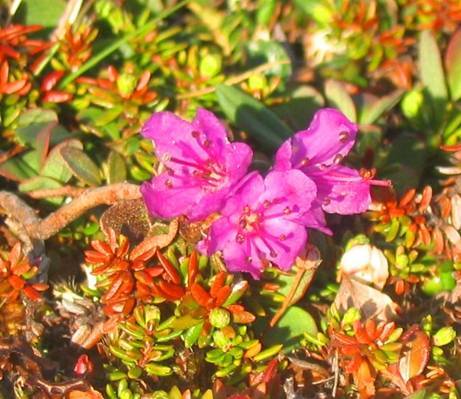Despite climate alarmist concerns that many high latitude ecosystems will be threatened by global warming-induced extinctions before the end of this century, the authors of this study find that “moderate climate change with an average temperature increase of 1.8°C over the next hundred years and a moderate frequency of extreme climatic events will not lead to local extinctions of long-lived clonal plant populations”… Read More
Snowfall and Snow Depth in Switzerland (31 July 2012)
IPCC-based predictions regarding a propensity for more extreme precipitation events to occur in a warming world has not been seen in Switzerland. In fact, just the opposite appears to be the case there over the past eight decades… Read More
Carbon and Nitrogen in the Soil of a Sweetgum Plantation after Eleven Years of Atmospheric CO2 Enrichment (31 July 2012)
How were their concentrations impacted? According to the authors of this study, “soil C and N contents were greater throughout the soil profile under elevated CO2 at the conclusion of the experiment”… Read More
CO2 Effects on Plant Nutrient Concentrations (31 July 2012)
What are the findings of the largest meta-analysis of the subject ever to be conducted? Duval et al. conclude that their findings “challenge the assumption that plant nutrient concentrations are generally lowered by elevated CO2 strictly on the basis of carbohydrate dilution,” thereby largely contradicting the “hidden hunger hypothesis” put forward a decade earlier by Loladze (2002)… Read More
Northern Scandinavian Temperatures of the Past 2000 Years (1 August 2012)
Maximum latewood density data for the period 138 BC-AD 2006 confirm the greater warmth of the Medieval and Roman Warm Periods compared to that of the Current Warm Period… Read More
Methane-Eating Microbes of Tibetan-Plateau Meadow (1 August 2012)
A new study examines the effects of warming and animal grazing on concentrations of the potent greenhouse gas, methane, yielding evidence of a significant biologically-induced negative feedback… Read More
A New Record of Late Holocene Climate at the Antarctic Peninsula (1 August 2012)
New evidence adds to the already voluminous database that suggests that the Earth has not yet eclipsed the level of global warmth experienced during the MWP, even with the help of all of the anthropogenic-produced CO2 that resides in the atmosphere, which facts cast great doubt upon the climate-alarmist claim that anthropogenic CO2 is the primary cause of Earth’s current level of not-so-unprecedented global warmth… Read More
Late-Holocene Climate of the Northeast Atlantic Ocean (1 August 2012)
There would appear to be little need to blame the current high (relatively speaking) atmospheric CO2 concentration for the current low (relatively speaking with respect to the entire 2400-year period examined by the authors of this study) temperature of the northeast Atlantic… Read More





